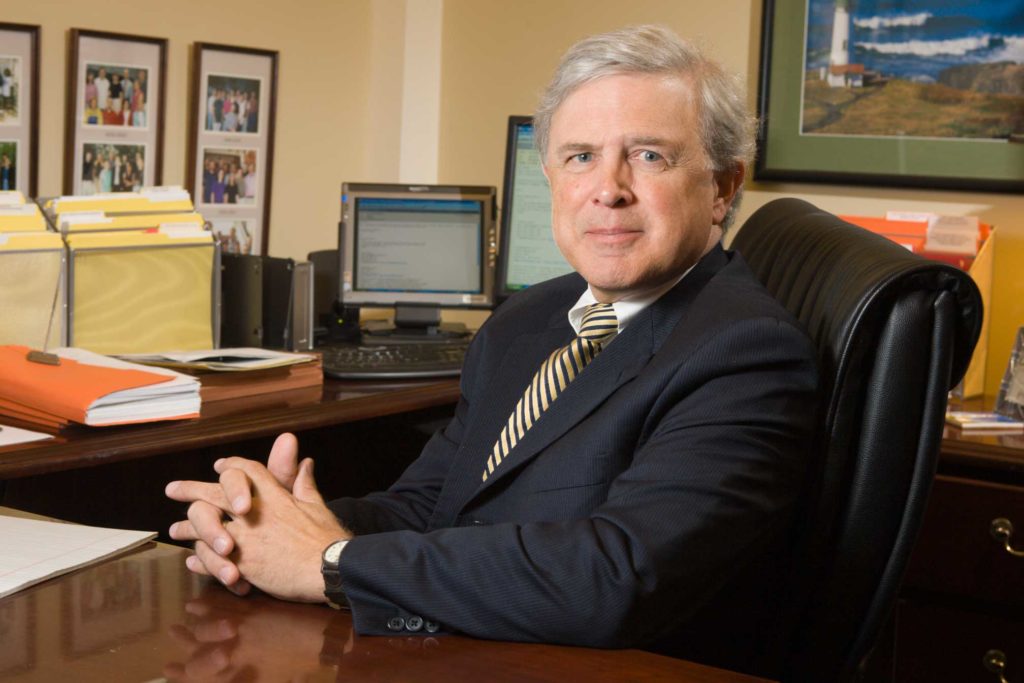Columns: What falls within the scope of “institutional effectiveness”?
Boehmer: One of the principle responsibilities is leading the next SACS accreditation effort. Every 10 years, UGA must have its accreditation reaffirmed by the Southern Association of Colleges and Schools. The last self-study took place in 1999–2000, so the next cycle is approaching rapidly. In fact, the Office of Institutional Effectiveness is holding a “SACS kick-off” event March 5 in Masters Hall of the Georgia Center. Several hundred people who will be involved in various ways in this effort have been invited to attend.
Our office also handles all the regular reporting to SACS that is done in between the decennial accreditations, and provides annual reports to the board of regents on “institutional progress.” These reports appear in Columns each December and also are available online on the Office of Institutional Effectiveness Web site (www.uga.edu/effectiveness).
Another major area of responsibility is assessment. Our office is specifically responsible for coordinating periodic reviews of academic programs. These faculty-conducted reviews occur on a seven-year cycle, providing a systematic means of assuring continuous improvement of programs.
We also coordinate reviews of support units, which are intended to guide development of administrative units and to inform administrators making decisions about the allocation of resources. Units are asked to do a careful “self-review” in light of their own mission and strategic plans and those of the university.
We’re also involved in assessment of the core curriculum and learning outcomes in undergraduate and graduate education.
Finally, the Office of Institutional Effectiveness includes the Office of Institutional Research, which collects, organizes, maintains and analyzes institutional and other data. Among other things, IR publishes annual Fact Books that are available online and maintains the online system known as FACTS, which provides access to key institutional data (see facts.oir.uga.edu/facts/).
Columns: How many people are involved in handling all this work?
Boehmer: I work on SACS, assessment and institutional research with Sue Achtemeier, Allan Aycock and Denise Gardner. Denise recently was named director of the Office of Institutional Research after serving as associate and interim director. She is also a Fellow with UGA’s Institute of Higher Education, and has worked in the field of institutional research for nearly 20 years. Denise is ably assisted by Tracie Sapp, associate director of IR, and a staff of about 18.
Allan, now director of program review and assessment, has been involved in program reviews and assessment of undergraduate majors since 2000. David Jordan recently joined the OIE staff as associate director of assessment. Julie Knoelke will join the office in March to coordinate program and support unit reviews. Brooke Bassham serves as an administrative associate for both Allan and the Office of the Vice President for Instruction.
Sue served as a research assistant for UGA’s 1999–2000 self-study while she was earning her doctorate from the Institute of Higher Education. She is now director of accreditation, but will retire at the end of this academic year, so I am currently searching for someone to fill her shoes.
We also have several graduate students in our office and rely heavily on Mandi Herrin, who serves as administrative associate.
Columns: To return to SACS accreditation for a moment, what is the timeline after the kick-off event this week?
Boehmer: This is a two-year process, but we have to be getting ready for it now. In early fall 2010, the university will file an electronic compliance certificate. Later that fall, we will submit our Quality Enhancement Plan. That is a five-year plan focusing on improving a key aspect of student learning identified by the university. Once that is done, we’ll be ready for a visit by a SACS team in spring 2011 to review our QEP. Reaffirmation is anticipated later that year.
Columns: Beyond accreditation, there seems to be quite a lot of discussion at national, regional and state levels about accountability in higher education. What do you make of this?
Boehmer: There is, indeed, increasing pressure at all these levels for transparency and accountability, perhaps reflected most notably in Secretary of Education Margaret Spellings’ Commission on the Future of Higher Education, which issued a report in 2006. That report has been front and center in the current congressional debate over reauthorization of the Higher Education Act. It is creating significant pressure on regional accrediting bodies to focus more heavily on student learning outcomes and to assure that institutions of higher education are defining outcomes, assessing them and following up with action when needed. Similarly, colleges and universities are responding by developing comprehensive institutional plans for establishing outcomes and assessing progress towards those. In my opinion, it is critical that we continue to be proactive in this arena so that this is carried out in a way that is tailored to our unique mission.
